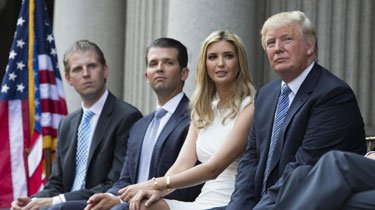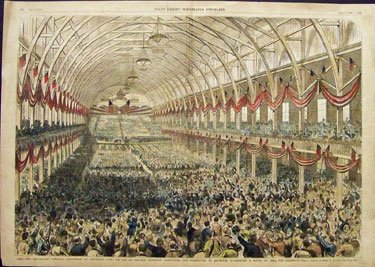As the Republican National Convention prepares to kick off next week in Cleveland, there is a lot of confusion and controversy over the question of whether delegates to the convention are “bound†to vote for any particular candidate as a result of primary or caucus results, or state party directions.
The controversy stems from the fact that a large number of delegates believe they cannot in good conscience vote for presumed nominee Donald Trump, while the confusion stems from either a misunderstanding of the history and rules of the Republican National Convention, or more recently a blizzard of misinformation and misdirection coming from those who wish delegates were bound
Here are the facts about delegates to the Republican National Convention and efforts to bind their vote according to primary results or instructions from their state party.
Republican delegates to the national convention have always been unbound by national party rules, with the single exception. The issue was decisively settled in 1876 when delegates voted 395 to 353 to uphold past rulings stating that delegates could not be bound to vote against their conscience. Following the vote, the chairman of the convention summarized the party’s position by saying “[I]t is he right of every individual member thereof to vote his individual sentiments.â€
In the following convention in 1880, rules committee chair James A. Garfield, who wound up winning the nomination himself on the 36th ballot and the White House that fall, wrote what is today Rule 37(b) of the temporary rules of the convention. This rule was enacted specifically to provide a mechanism that would ensure every delegate was unbound and free to vote their conscience, and it gave every delegate the right to challenge his delegation’s announced vote on the floor of the convention and have his vote recorded as he wished.
In rejecting the binding of delegates, both the 1876 and 1880 conventions were embracing what had been the understanding of previous conventions dating back to 1856, the first Republican National Convention. At both 1860 and 1868 conventions, some delegations arrived with instructions or recommendations from their state conventions on which candidate to vote for, and at both conventions the right of delegates to ignore those directions and vote their consciences was upheld.
The Republican National Convention has also historically rejected the idea that state laws could bind delegates any more than state party rules or directions could. The very first time delegates were supposedly bound by state law was at the 1912 convention.
Both the Illinois and Oregon delegations announced that state law dictated how they were to vote, but that some delegates did not want to vote as ordered. In the same way the Republican convention had always rejected any sort of binding, those delegates were allowed to vote according to their consciences and ignore state law. The Oregon delegation made similar announcements in 1916 and 1920, and each time delegates were allowed to ignore state law and vote their consciences.
Although some claim it is “illegal†for delegates to defy state laws instructing them how to vote, the U.S. Supreme Court held in two cases nearly forty years ago that state laws could not trump national party rules. Part of their reasoning was that political parties must be free from government control, particularly in matters as important as who the party’s nominee would be, delegate selection, and how delegates could vote.
A careful reading of the rules passed by the 2012 Republican National Convention proves this to be the common understanding and practice of the party. Rules 14 and 16, which govern the election and selection of delegates to the convention, include several references to the fact that the national convention is free to ignore state law, including two occasions where rules begin with the phrase “No state law shall be observed…â€
And Rule 16(b)(1) stipulates that state party rules take precedence over state laws governing the election and selection of delegates, and that national party rules take precedence over both. So clearly the national party does not accept that state laws can supersede either state or national party rules.
The only time delegates have been bound by primary results or anything else was in 1976, when the campaign of President Gerald Ford pushed through a rule requiring votes from nineteen states with laws purporting to bind delegates be announced and recorded as if those laws were valid. It was widely understood at the time those laws were unconstitutional as a result of a recent Supreme Court ruling, but the rule was sufficient to bind delegates’ votes for the first time in Republican National Convention history. …
In short, the history of the Republican National Convention proves that delegates have always, with the exception of 1976, been free to vote their conscience, and the rule that has protected this right over the last 136 years remains part of the temporary rules of the 2016 convention. The U.S. Supreme Court’s rulings on the issue also make clear that delegates are free to ignore state laws purporting to bind them, and the one national party rule purporting to bind delegates expires at the start of the convention.
These facts make clear that all delegates are completely unbound and free to vote their conscience on any and all matters that come before them, including the first ballot to decide the party’s nominee for president. No rule change is needed to unbind delegates, so long as the party stands by its 160-year history (aside from the blemish of 1976) protecting this important right.





